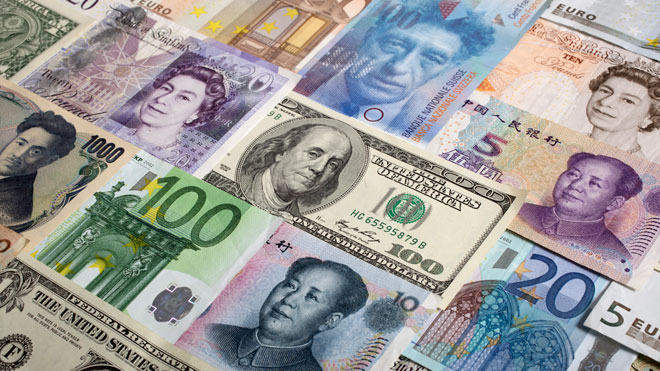Is a Global Financial Transaction Tax a Sound Solution?

Please note that we are not authorised to provide any investment advice. The content on this page is for information purposes only.
The Brisbane G20 Summit offered civil society groups an opportunity to renew demands for a financial transaction tax (FTT). But in the end it proved a missed opportunity to build international cooperation on financial reform.
The Brisbane G20 Summit offered civil society groups an opportunity to renew demands for a financial transaction tax (FTT). But in the end it proved a missed opportunity to build international cooperation on financial reform.
The global financial transaction tax (FTT) was first tabled at the Cannes Summit in 2011 due to persistent campaigning by a range of international civil society groups. The 2010 Interim Report of the G20 on Fair and Substantial Contribution by the Financial Sector had proposed a flat rate levy on all financial institutions and a ‘financial activities tax’ on profits and remuneration in order to pay for future financial clean-ups and reduce systemic risk. But the proposal was diluted in Busan later that year. That summit called for implementation of the levy taking into account individual country’s circumstances and options.
Despite strong resistance to an FTT by many G20 member-countries, civil society groups should not retreat from this key demand. Rather renewed efforts and mass campaigns should be launched in each member-country of G20 to influence political leaders to accept this demand.
Contrary to popular perception, financial transaction taxes are not new. Many G20 countries had experimented with a wide range of transaction taxes in the past and some countries continue to levy such taxes today.
India, for instance, introduced a Securities Transaction Tax (STT) on equity market trading a decade ago. The STT has undergone modifications in tune with the market developments but it is still being levied on listed securities on stock exchanges and in units of mutual funds. In 2013, India also introduced a Commodity Transaction Tax of 0.01 per cent on commodity futures contracts — including gold, copper and oil — traded in Indian markets.
The policy objectives for a FTT are two-fold: to raise revenue and to restore stability and integrity in the financial markets. According to estimates made by Bill Gates in a report on new sources of finance for development, a tax on financial transactions could generate about US$50 billion from G20 member countries. Some other estimates claim that a global financial transaction tax could generate as much as US$250 billion if a wide range of transactions are included. Revenues raised through FTT could be utilised to support programs to fight hunger and poverty and pay for climate mitigation and adaptation costs.
Apart from revenue potential, there are several other justifications for the adoption of a global transaction tax. Such a tax could facilitate the monitoring of international financial flows by providing a centralised database. This could be particularly valuable to developing countries where large information gaps exist.
Unlike many other services, no value-added tax (VAT) is imposed on financial transactions in many jurisdictions. By taxing diverse financial transactions, a strong message would be conveyed that private banks and financiers must share the costs of the global financial crisis.
Given that the majority of transactions made by speculators and high frequency traders are short-term and speculative, an FTT could curb speculative tendencies that induce excessive volatility and fragility in the financial markets. A small tax is unlikely to discourage long-term investors such as pension funds. There is little evidence that an FTT would trigger a liquidity squeeze in financial markets. Avinash Persaud has argued that since high-frequency trading is pro-cyclical, a transaction tax that limited such trading ‘may even provide a bonus in improving systemic resilience’.
Much of the criticism of the FTT focuses on its practicality and technical feasibility. It is often argued that the imposition of such a tax is a difficult proposition since the volumes traded are too high. Yet if modern technology can enable large-scale financial transactions within and across borders, why can’t it be used to collect taxes?
Critics also argue it is almost impossible to get all the countries to agree on a common global tax. This is where leadership comes in. G20 member-countries could impose a FTT unilaterally or collectively. An agreement among the leading financial centres could also contain the threat of relocation of financial activities to other places.
The issues raised by the FTT are more political than technical. Its adoption requires strong political will, particularly among the G20 member-countries. Recent experience (including cooperation on money laundering from drug trafficking) shows that international cooperation among countries is possible if there is a political will. A similar cooperative initiative is required to address implementation issues related to FTT.
Another common criticism of FTT is related to evasion. All taxes are open to evasion but this is not a good reason to not have them. Concerted efforts should be made to check loopholes. No policy measure can be foolproof.
No one argues that a global financial transaction tax would resolve all the problems related to global financial markets. No single policy instrument alone can fix global finance. But an FTT could serve as a first step towards building international cooperation on global financial reforms. If used in conjunction with other policy instruments, an FTT offers an attractive mechanism to reform the inherently unstable global financial markets.
Reviving the call for a global financial transaction tax is republshed with permission from East Asia Forum




